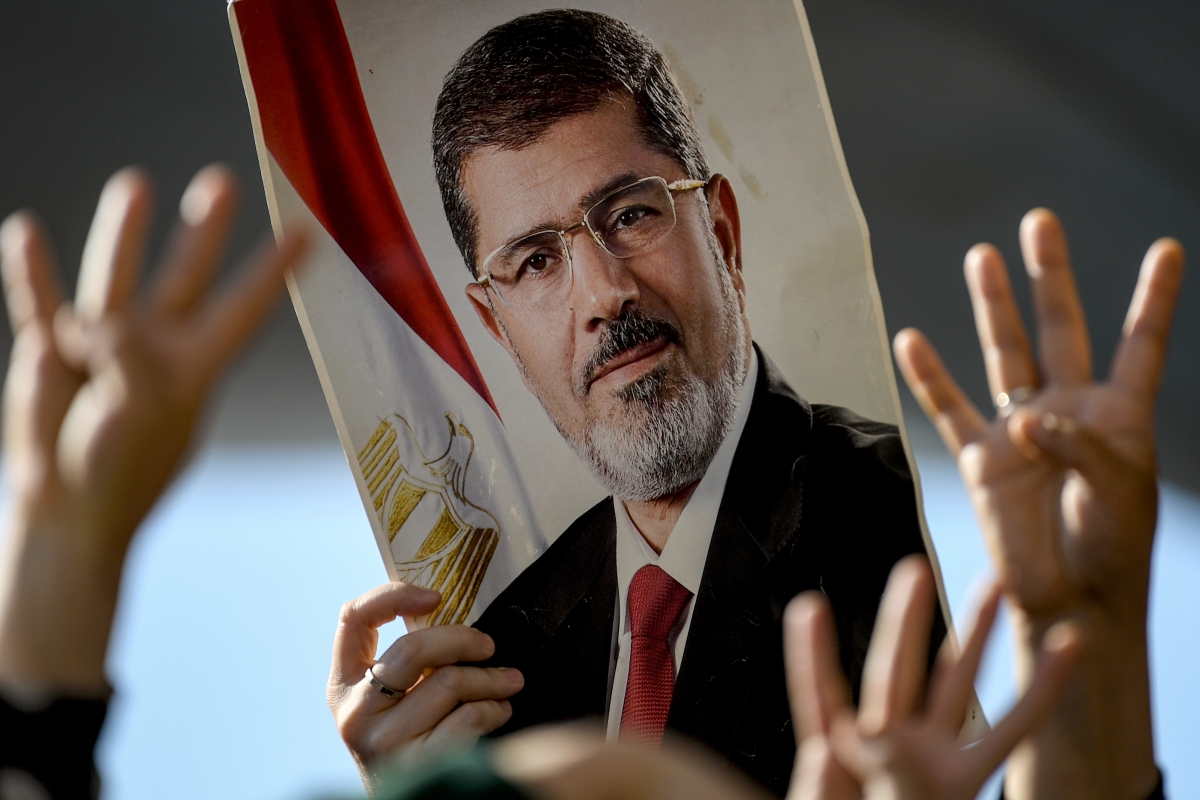In death, Mohamed Morsi symbolises an Egypt that has been floundering since the heady days of the Arab Spring of 2011 when Hosni Mubarak was overthrown by the people. It is a quirk of history that the country’s first democratically elected President in 2012, one who personified the Islamist surge, was ousted by the military, intrinsically a legacy of the Mubarak era.
It was the army’s counter- mobilisation against the people. The circumstances of Morsi’s passing on Monday were paradoxical enough ~ he collapsed in court during a retrial of charges of espionage in league with the Palestinian Hamas organisation.
Advertisement
The UN’s call for an independent probe into a death in “state custody” is in itself a pregnant directive. Once he was in power, Morsi’s robust Islamist policies provoked protesters back into the streets in such huge numbers that in July 2013 the army sacked the government, arresting Morsi and fellow-travellers of the Muslim Brotherhood. Much as Egypt had got rid of a repressive dictator, it wasn’t quite ready for an Islamist regime.
In the event, it has been saddled with a quasi-military regime, helmed by Field Marshal Sisi. Morsi was, in point of fact, ousted in a coup. He was taken to the headquarters of the Republican Guard in eastern Cairo, where many of his supporters were later gunned down by the army. Not that Morsi had governed post-Mubarak Egypt with the seriousness that it deserved.
Apart from working on a theocratic agenda, he had no clear plan for economic recovery of a beleaguered country, besides the pump-priming from Qatar and other allies. He failed to cleanse the notorious security apparatus, which continued to torture and kill protesters, and attempted to woo the electorate by announcing expensive food and fuel subsidies.
He imposed a “Muslim Brother” as culture minister. In foreign policy, his sole achievement was to help broker a ceasefire between Israel and Hamas. The military coup that brought his interregnum to an end was a literally bloody narrative that followed the Arab Spring. It was marked by a massive crackdown on the Muslim Brotherhood and other Islamists.
Ever since Morsi’s ouster, the government in Cairo has declared the Muslim Brotherhood as a terrorist organisation that was crushed with a heavy crackdown. He had been convicted for ordering Brotherhood members to break up a protest against him.
Egypt today isn’t really a halfway-house between a dictatorship of the Mubarak or Assad variety and fundamentalism; since February 2011 it has been floundering in search of its moorings under the strong hand of the military.
Democracy is an elusive quantity, as indeed in the other countries that were convulsed by the Arab Spring. Regretfully, the noble objective of the Jasmine Revolution has given way to ignoble strife in Egypt, Libya, and Syria.











